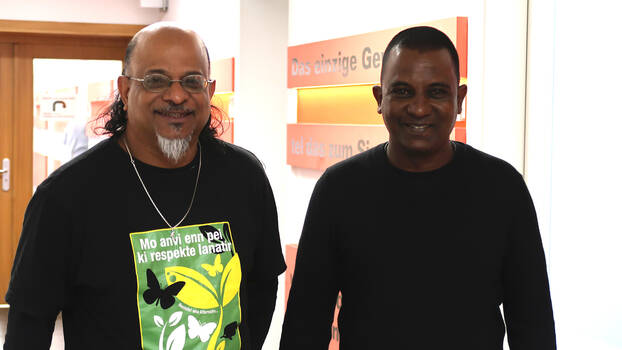
Mauritius is well known for being one of the tropical tourist paradises with white beaches, blue water and a sun that seems to shine all day long. But this small island in the Indian Ocean is also one of the countries directly affected by the impacts of climate change: The number of flashfloods and hurricanes has risen, as well as the sea-level did. This environmental crisis is not a local phenomenon, but part and result of global climate change where the least responsible are the most affected.
Following the principles of climate justice Rosa-Luxemburg-Stiftung is supporting the Center for Alternative Research and Studies on Economic, Social and Environmental Issues (CARES) in their work to develop with the “School of Ecology” a coherent network of social movements, academics and alternative political movements in the region. They are analyzing this ecological and climate crisis as product of the system of capitalism and develop a red-green response and promote alternatives to this current crisis.
We met Ashok Subron, President of CARES, in Berlin and talked with him about his work and the last COP 22 in Marrakesh when his colleague realized that the devil was sitting on the table, ignoring the demands of the people of the Global South for a mechanism of climate debt. Apart from supporting the demands of the people from the Global South he wishes that the global North is not trapped in a green economy because the mode of production and distribution needs to be a social one. In working for that he also expects the movements of climate justice to include the concept of Nature Rights where there are a lot of important experiences in different parts of the world, that should be included in a new movement.